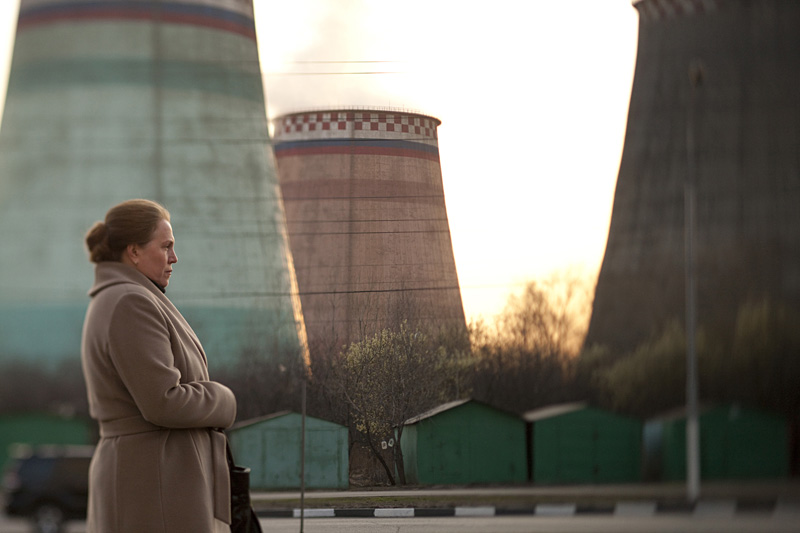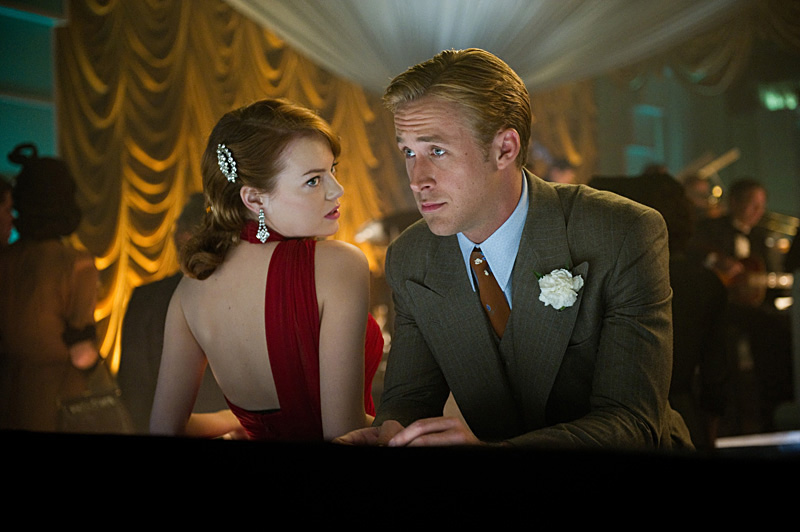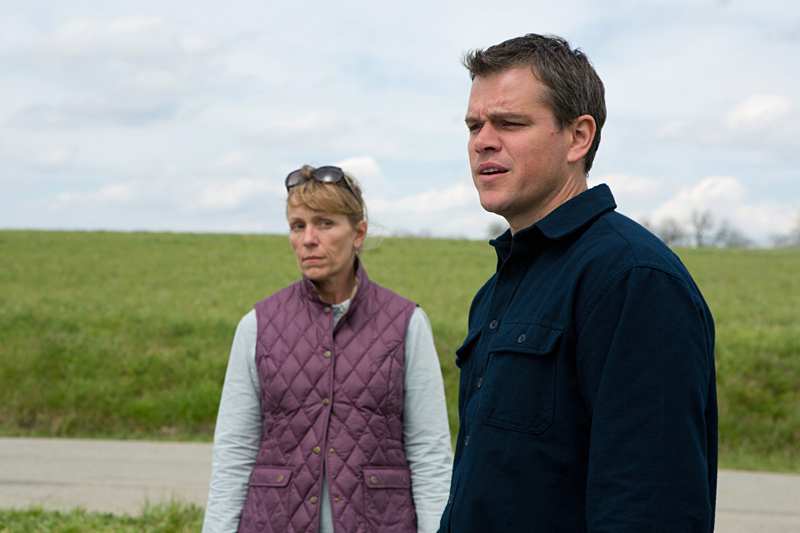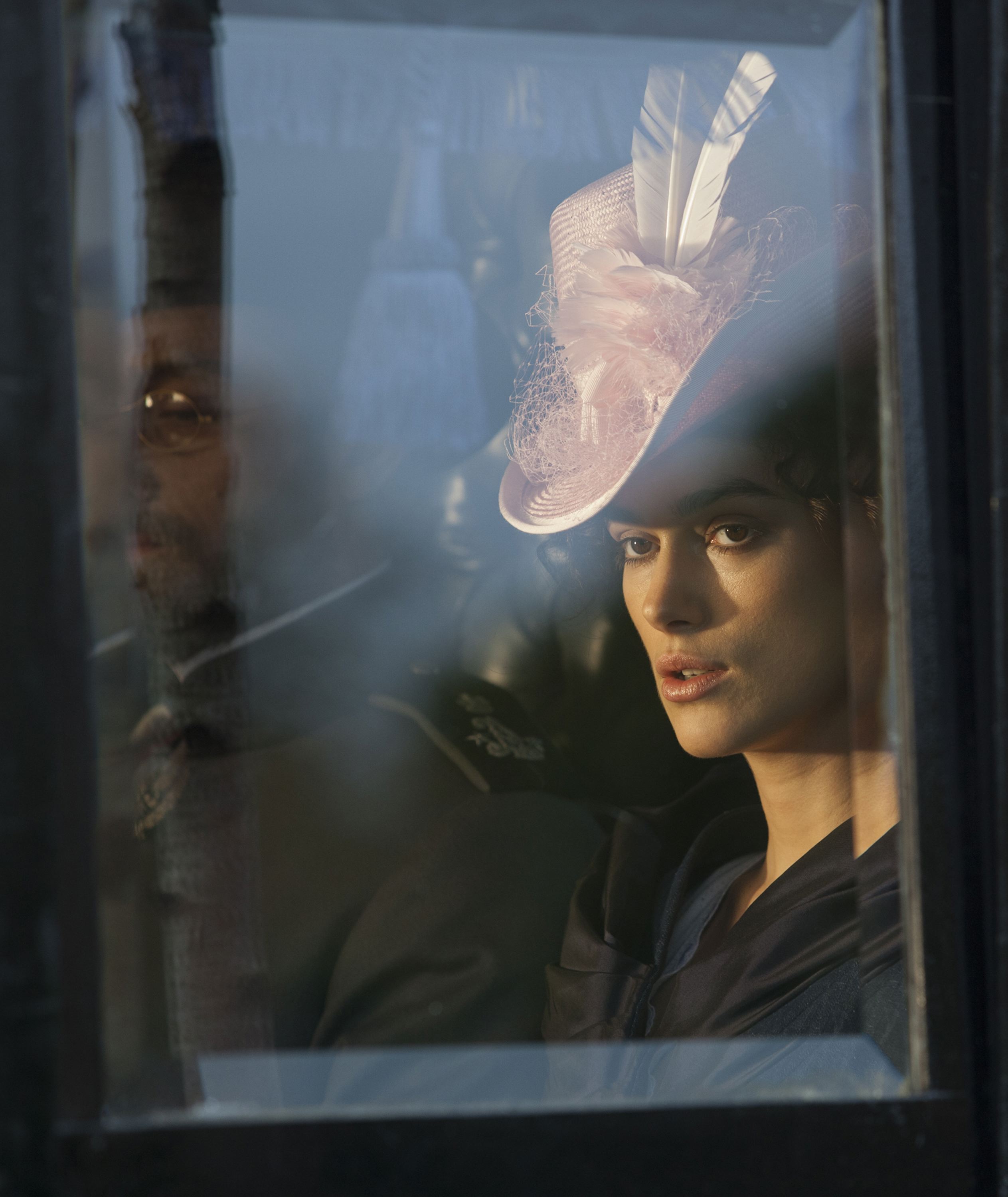Andrey Zvyagintsev’s Elena is a tale of two apartments: a spacious chrome, glass, and marble luxury flat that might be anywhere in prosperous Western Europe, and a cramped unit in some exhausted-looking, distinctly Soviet-vintage apartment block with a view of a nuclear plant. Central to the movie is the distance, physical and psychological, and the mutual resentment, that exists between these spaces. Fiftyish working-class Elena (Nadezhda Markina) lives and serves her wealthy older husband, Vladimir (Andrey Smirnov), in the first, and visits her unemployed son from another marriage in the second. A domestic loggerheads results when Elena asks Vladimir a favor for her son’s family, and he declines; this comes to a crisis when a health scare inspires Vladimir to codify his intentions in a will, while also putting himself, weakened by illness, at the mercy of Elena, playing his nurse. In a few shrewd, telling scenes, the central couple is seen, together and separately, playing their various roles with their various contradictory loyalties. With taciturn camerawork and a scalpel-like precision in dissecting class that recalls Claude Chabrol, Zvyagintsev’s film observes Elena making the decision of which family to be loyal to and how she asserts her newfound power as the idea of apocalypse hangs over the film’s troubling conclusion.
Elena: Life Is Still Grim in the Old Soviet Union








